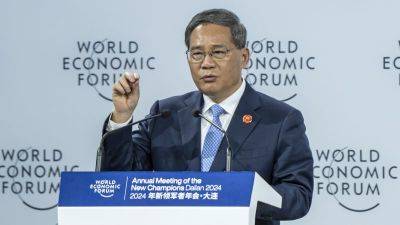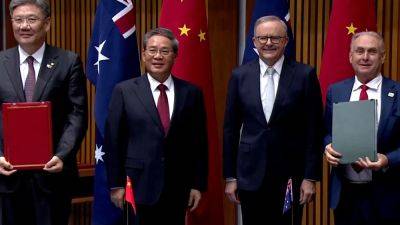China’s long and fuzzy history of ‘panda diplomacy’
During his visit to the Adelaide Zoo on Sunday, Chinese Premier Li Qiang announced that two “equally beautiful, lively, cute, and younger” pandas would be given to Australia to replace Wang Wang and Fu Ni, who will return to China later this year after calling Adelaide home for 15 years.
The gifting of pandas to other countries has long been a part of Chinese diplomacy. But what exactly is this unique approach to Chinese soft power? Why does it work? And will it profoundly impact Australia-China relations now?
China’s panda diplomacy from Mao to now
Panda diplomacy by the People’s Republic of China began in the 1950s when the newly established communist regime under Chairman Mao Zedong started giving pandas to its socialist allies to strengthen ideological ties and foster diplomatic goodwill.
Ping Ping and Qi Qi, China’s first panda “ambassadors”, arrived in the Soviet Union in 1957 to celebrate the 40th anniversary of the October Revolution, when the Bolshevik party seized power in Russia.
A pivotal moment then came in 1972. Following US President Richard Nixon’s historic visit to Beijing, two pandas, Ling-Ling and Hsing-Hsing were gifted to the United States. This gesture symbolized a strategic shift in China’s foreign policy towards engaging with Western nations and easing Cold War tensions.
Later that year, Japan also received two pandas, Kang Kang and Lan Lan, after normalizing diplomatic relations with China.
By 1984, under Deng Xiaoping’s leadership, panda diplomacy transitioned from outright gifts to long-term loans, embodying China’s market-orientated economic reforms.
The lease model saw pandas being loaned for significant fees, typically between US$500,000 to $1 million per year, with the proceeds directed







